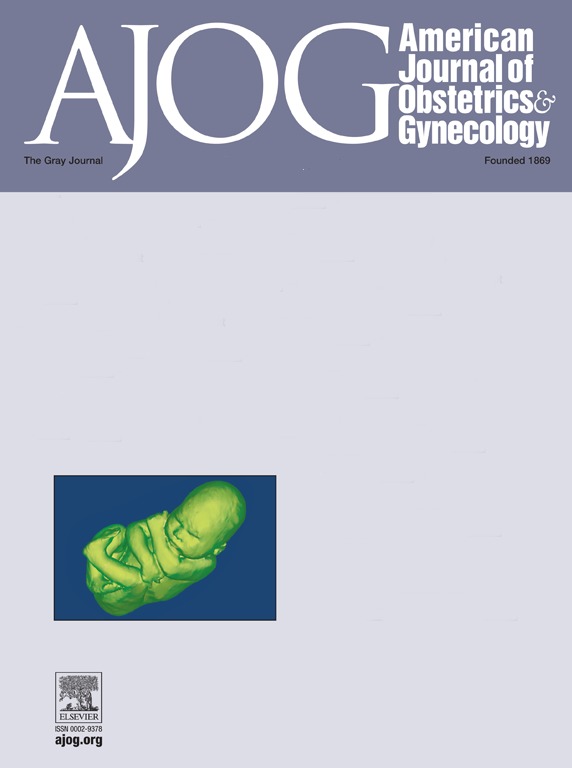Practical Applications of Artificial Intelligence Chatbots in Obstetrics and Gynecology Medical Education.
IF 8.7
1区 医学
Q1 OBSTETRICS & GYNECOLOGY
引用次数: 0
Abstract
Generative artificial intelligence (AI) chatbots are sophisticated conversational AI tools that have the capability to interpret natural language inputs and produce responses that closely resemble human speech. AI chatbots hold significant promise in revolutionizing medical education by offering invaluable support across various educational domains, including teaching, learning, and assessment. Their practical applications span a wide spectrum, from aligning learning objectives and simplifying administrative tasks to facilitating feedback, aiding faculty development, and supporting mentorship initiatives. However, alongside their potential benefits, concerns exist regarding data privacy, inherent biases, and occasional errors termed "hallucinations," underscoring the imperative for a cautious and informed approach to their integration within educational settings. It therefore becomes essential for medical educators and academic institutions to proactively engage with AI technologies like chatbots, not only to leverage their benefits but also to critically assess and address associated challenges such as bias, privacy, and misinformation. By thoughtfully integrating AI tools, medical educators can determine where these technologies are most beneficial, implement safeguards against potential harms, and explore innovative applications to enhance medical education.人工智能聊天机器人在妇产科医学教育中的实际应用。
生成式人工智能(AI)聊天机器人是一种复杂的对话式人工智能工具,有能力解释自然语言输入,并生成与人类语音非常相似的回复。人工智能聊天机器人在教学、学习和评估等各个教育领域提供了宝贵的支持,在彻底改变医学教育方面大有可为。它们的实际应用范围很广,从调整学习目标、简化管理任务到促进反馈、帮助教师发展和支持导师计划。然而,除了其潜在的益处外,人们还担心数据隐私、固有的偏见以及偶尔出现的被称为 "幻觉 "的错误,这突出表明,在教育环境中整合这些数据时,必须采取谨慎和知情的方法。因此,医学教育工作者和学术机构必须积极主动地接触聊天机器人等人工智能技术,不仅要利用它们的优势,还要认真评估和解决相关的挑战,如偏见、隐私和错误信息。通过深思熟虑地整合人工智能工具,医学教育工作者可以确定这些技术在哪些方面最有益处,实施防范潜在危害的措施,并探索创新应用以加强医学教育。
本文章由计算机程序翻译,如有差异,请以英文原文为准。
求助全文
约1分钟内获得全文
求助全文
来源期刊
CiteScore
15.90
自引率
7.10%
发文量
2237
审稿时长
47 days
期刊介绍:
The American Journal of Obstetrics and Gynecology, known as "The Gray Journal," covers the entire spectrum of Obstetrics and Gynecology. It aims to publish original research (clinical and translational), reviews, opinions, video clips, podcasts, and interviews that contribute to understanding health and disease and have the potential to impact the practice of women's healthcare.
Focus Areas:
Diagnosis, Treatment, Prediction, and Prevention: The journal focuses on research related to the diagnosis, treatment, prediction, and prevention of obstetrical and gynecological disorders.
Biology of Reproduction: AJOG publishes work on the biology of reproduction, including studies on reproductive physiology and mechanisms of obstetrical and gynecological diseases.
Content Types:
Original Research: Clinical and translational research articles.
Reviews: Comprehensive reviews providing insights into various aspects of obstetrics and gynecology.
Opinions: Perspectives and opinions on important topics in the field.
Multimedia Content: Video clips, podcasts, and interviews.
Peer Review Process:
All submissions undergo a rigorous peer review process to ensure quality and relevance to the field of obstetrics and gynecology.

 求助内容:
求助内容: 应助结果提醒方式:
应助结果提醒方式:


